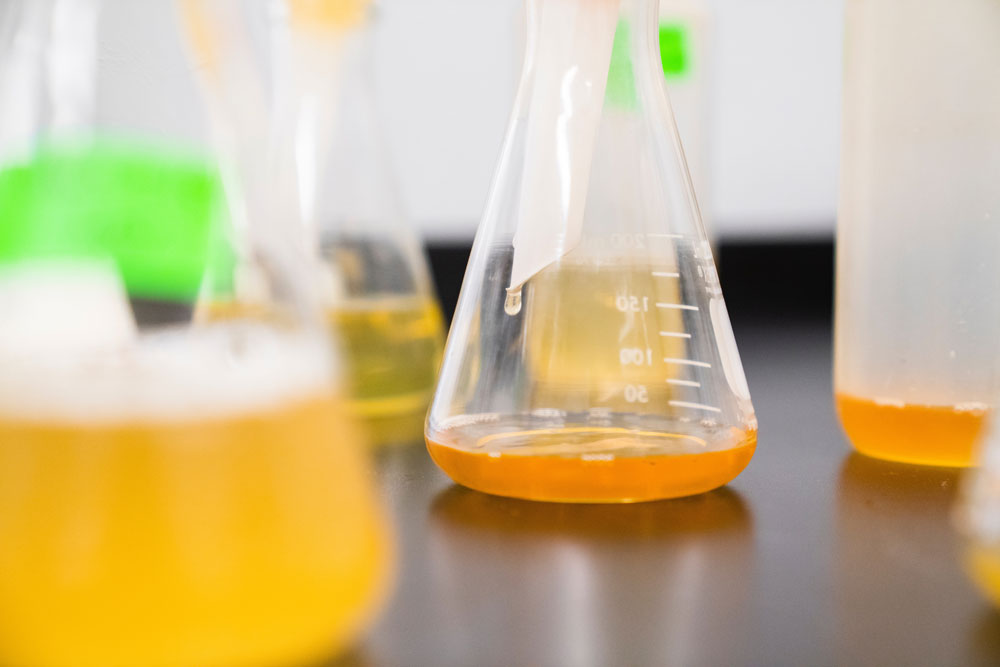The Rutgers–Camden MSFS offers a comprehensive program of study that leads to employment as a practitioner or admission to graduate/professional schools.
Students complete core requirements and can select electives that reflect their personalized career goals.
Questions about the Program or Courses? Contact:
Kimberlee Moran,
Associate Teaching Professor & Director of Forensics
Program Highlights
- Hands-on Learning. Student learn and practice forensic techniques that are in use daily at forensic laboratories around the country and well as the newest forensic technology.
- Career Building Opportunities. Participation at conferences, events, and unique field experiences offer opportunities to network with professionals.
- Specializations. Students can specialize in a particular sub-discipline by focusing their electives, laboratory experience, and research in that area. See ‘Our Research‘ and ‘Our Courses‘ for details.
Program Requirements
- The program is designed to meet the requirements necessary for employment as a forensic chemist, toxicologist, or a forensic biologist.
- A candidate for the Master’s degree must complete a total of at least 38 credits of graduate work. The course of study is highly structured but also allows for students to concentrate in the areas of forensic chemistry, toxicology, and forensic biology.
- Students complete a capstone project of original research under the supervision of practicing forensic professionals.
Info Session
This video provides and overview of our program and admissions requirements.
Program Specializations
Forensic chemistry coursework is constructed to meet all of the educational requirements for Drug Analysts and Forensic Toxicology Technical Leaders put forth by and adopted by the Scientific Working Group for the Analysis of Seized Drugs (SWGDRUG) and the Scientific Working Group for Forensic Toxicology (SWGTOX) respectively. Forensic biology coursework is constructed to meet all of the educational requirements for Forensic DNA Analysts and Forensic DNA Technical Leaders put forth by the National Quality Assurance Standards for Forensic DNA Testing Laboratories adopted by the Federal Bureau of Investigation.
A candidate for the Master’s degree in Forensic Science must complete a total of at least 38 credits of college work.
To remain in good standing, students may only receive one C grade during their course of study. Students who receive more than two C grades will be dismissed from the program.
A sample 4-semester sequence of courses is provided below*:
*Many course run on an every-other year basis. It is essential that students consult with the MSFS Graduate Program Director when registering for classes.
Year 1 – Fall Semester (10 total credits toward degree)
56:412:525, Forensic Science: theory & policy – 3 credits
56:160:580, Forensic Chemistry – 3 credits
56:160:682, Forensic Chemistry Lab – 1 credit
56:155:530 Biomolecular DNA – 3 credits
Year 1 – Spring Semester (11 total credits toward degree)
56:121:520, Essentials of Biomathematics or 56:160:523, Statistical Methods in Chemistry – 3 credits
56:160:584, Forensic Toxicology or 56:160:611, Fundamentals of Pharmacology & Pharmacokinetics – 3 credits
56:412:527, Forensic Pattern Evidence – 3 credits
56:412:700, Forensic Science Research – 2 credits
Summer Session
Research continues
Year 2 – Fall Semester (9 total credits towards degree)
56:412:701, Research in Forensic Science – 2 credits
56:412:526, Crime Scene Investigation – 3 credits
Elective Option – 3 credits
56:160:601, Graduate Seminar – 1 credit
Year 2 – Spring Semester (8 total credits towards degree)
56:115:531, DNA Lab – 1 credit
56:412:702, Research in Forensic Science and Capstone Presentation – 4 credits
Elective Option – 3 credits
Submit final Capstone Paper to committee by mid-March
Electives include:
- 56:412:500-level Any 500-level graduate forensic science course
- 56:160:500-level Any 500-level graduate chemistry lecture course
- 56:115:500-level Any 500-level graduate biochemistry lecture course
- 56:120:500-level Any 500-level graduate biology lecture course
- 56:121:500-level Any 500-level graduate computational & integrative biology lecture course
- 56:160:500-level Any 500-level chemistry laboratory course
- 56:115:500-level Any 500-level biochemistry laboratory course
- 56:120:500-level Any 500-level biology laboratory course
Note: Electives are distinct from the required courses noted above.
In addition, students must complete at least 8 credits of Research in Forensic Science, which are taken under the supervision of a faculty adviser.
- 56:412:700 Research in Forensic Science (2 credits)
- 56:412:701 Research in Forensic Science (2 credits)
- 56:412:702 Research in Forensic Science and Capstone Presentation (4 credits)


